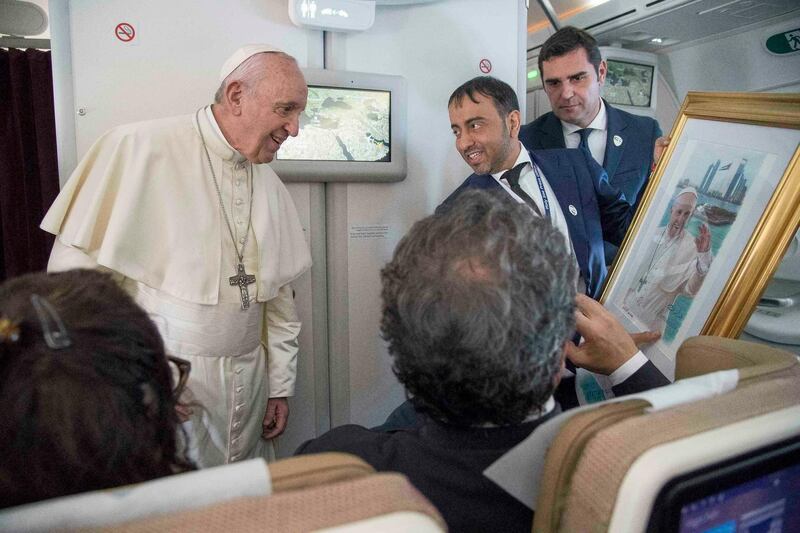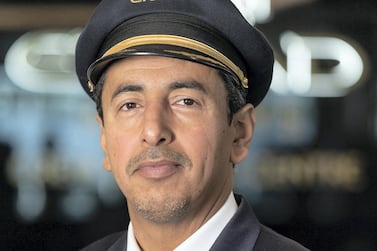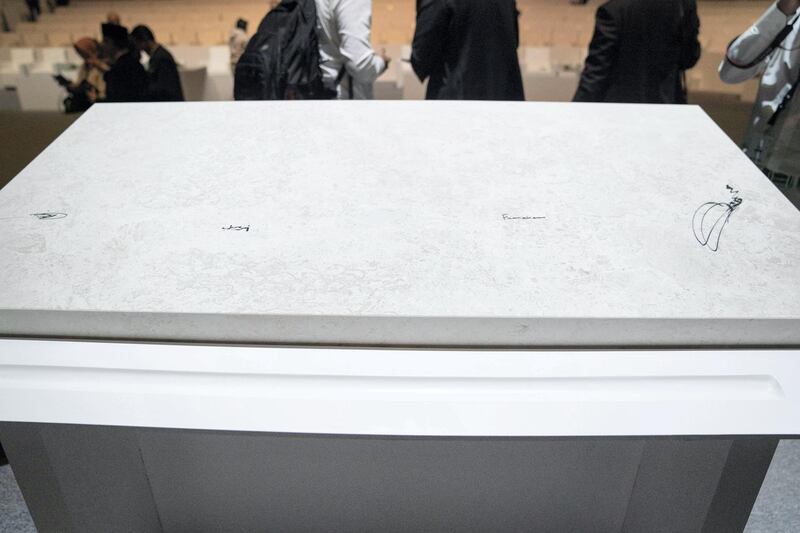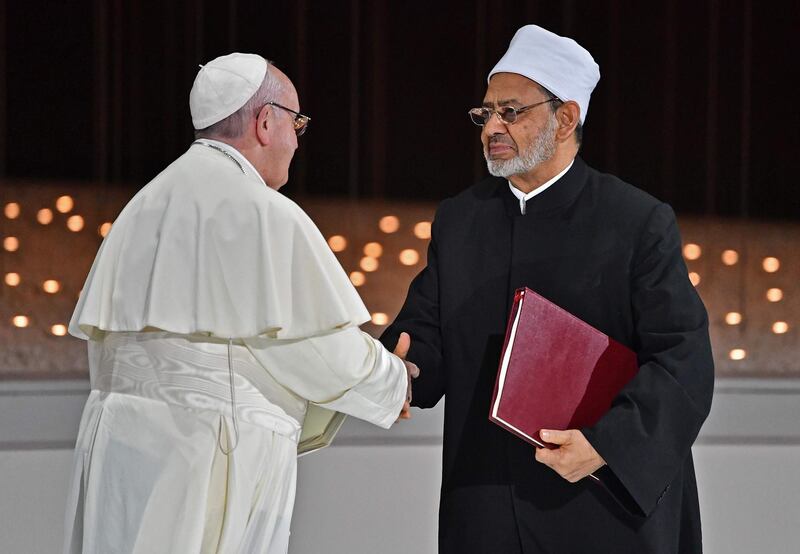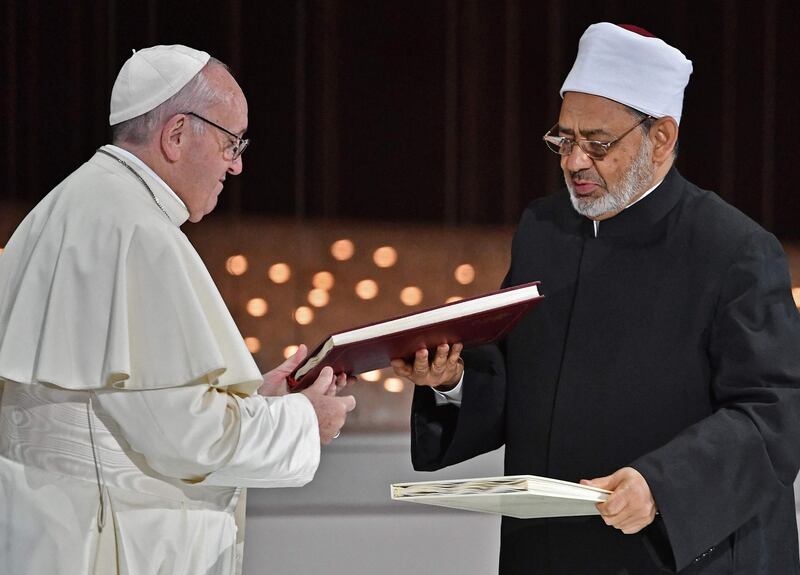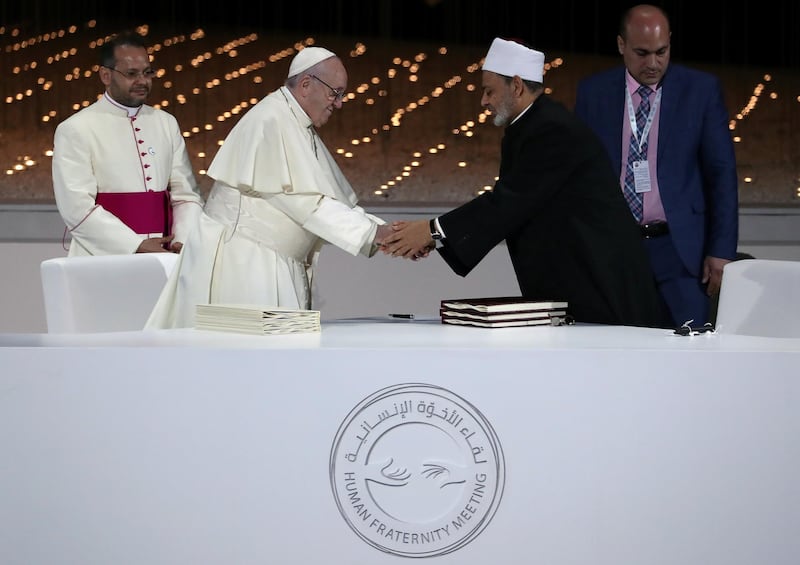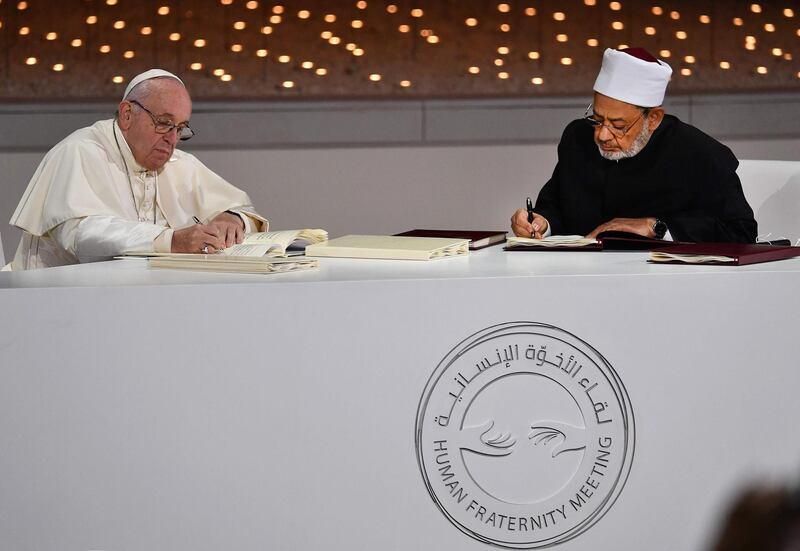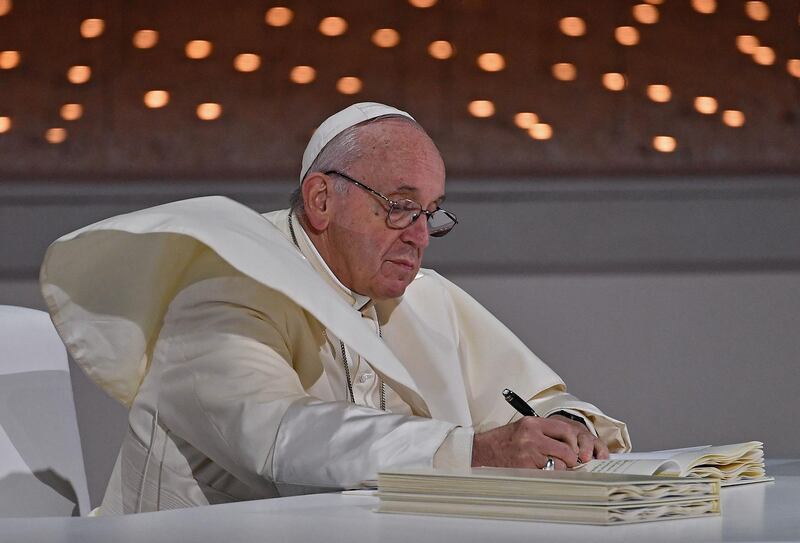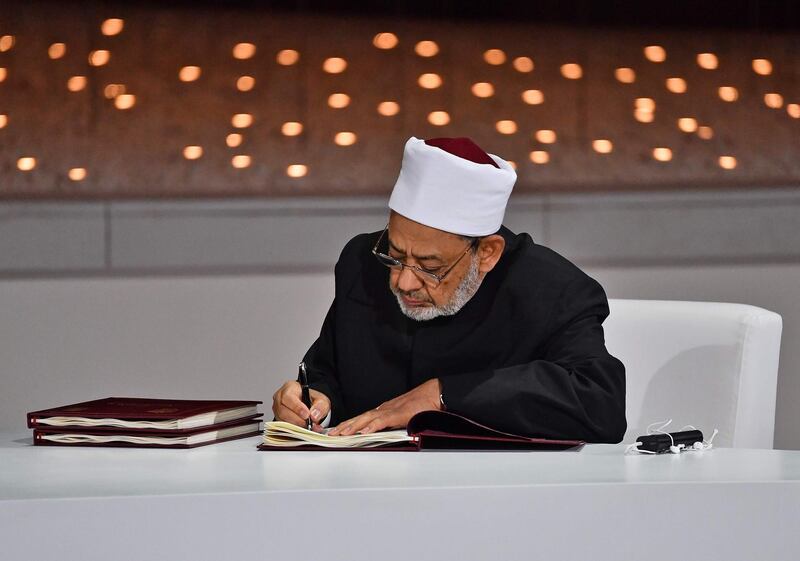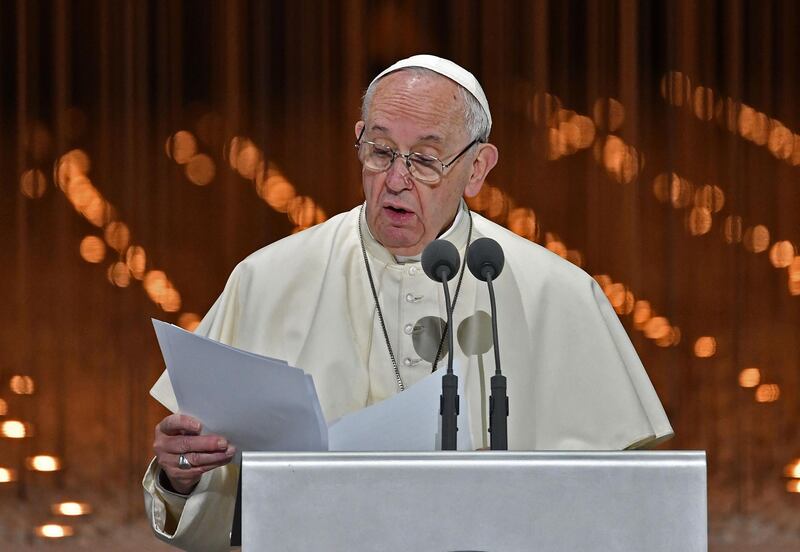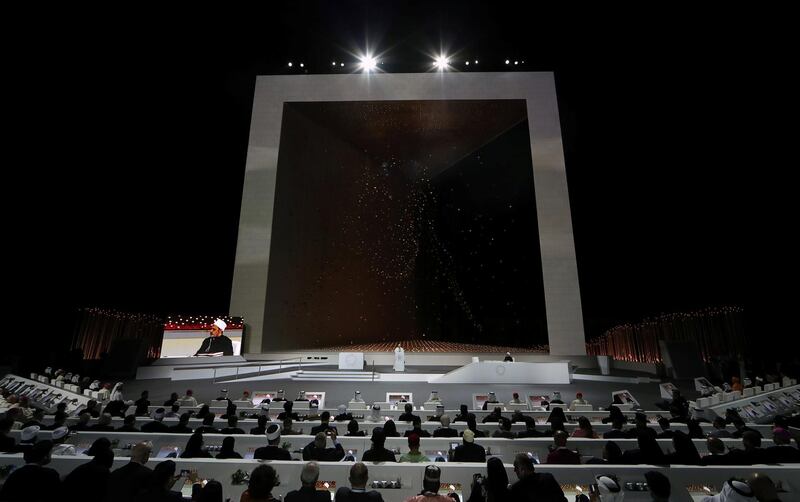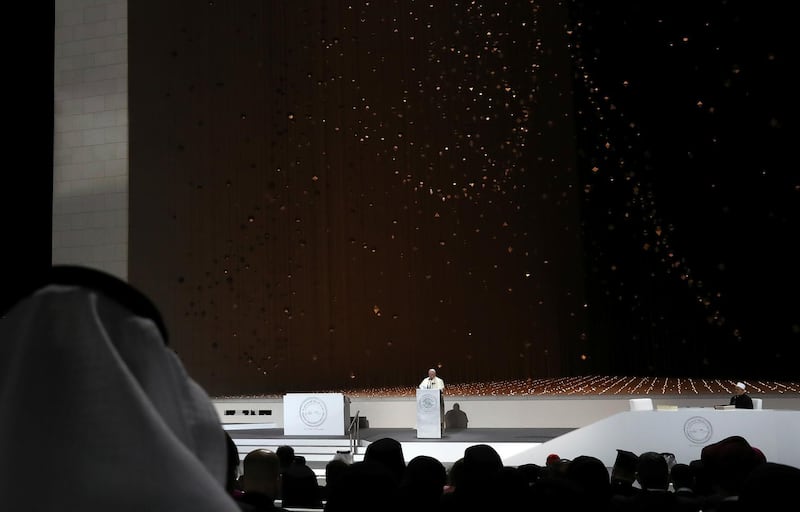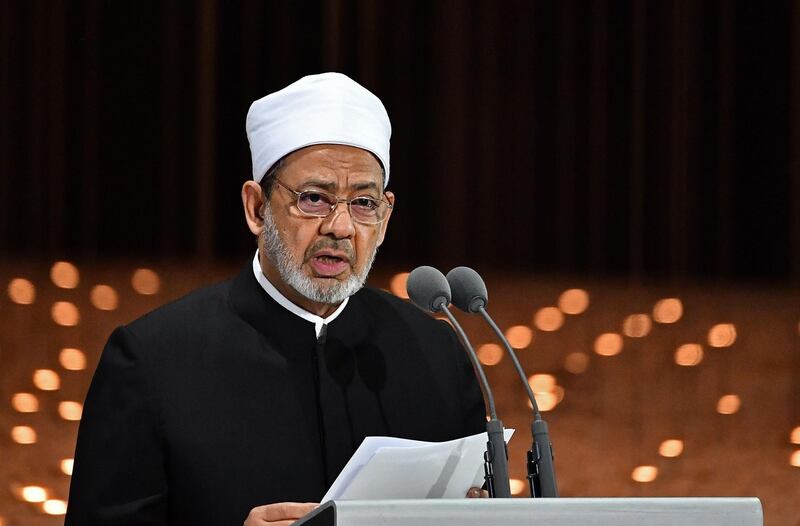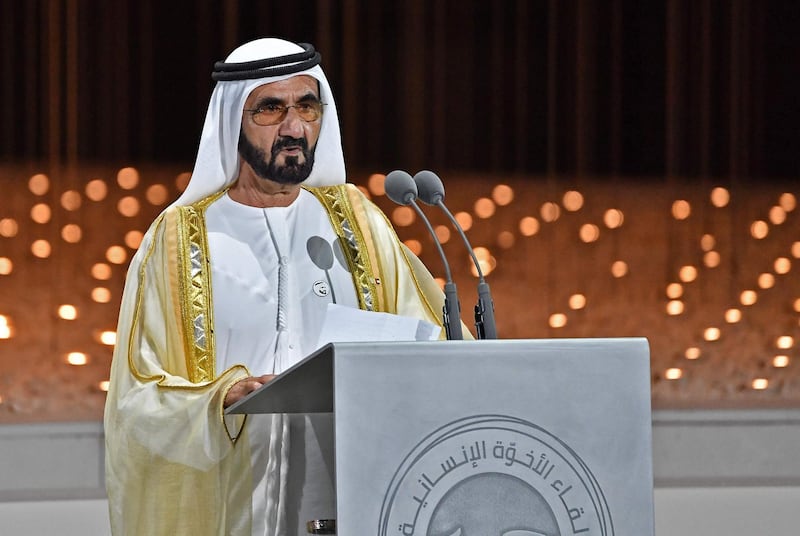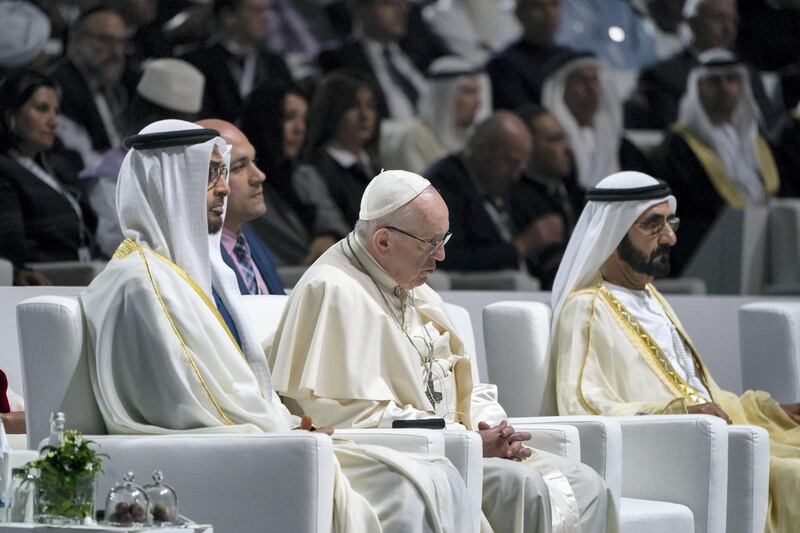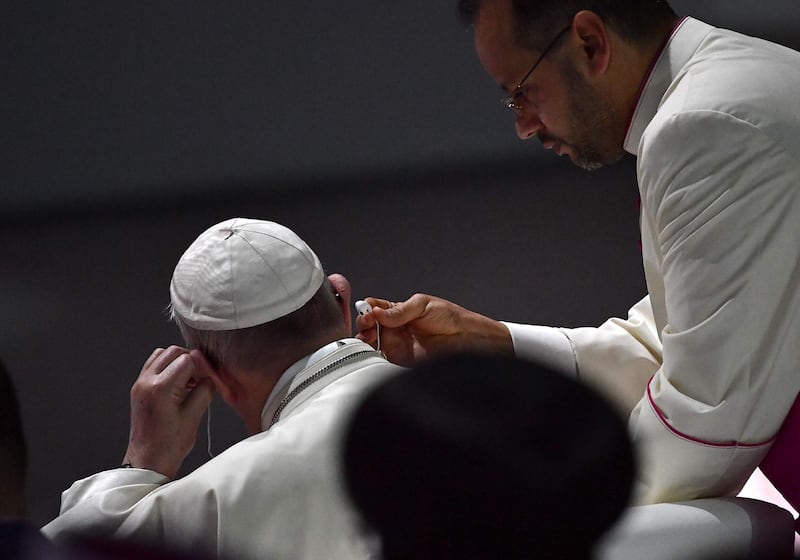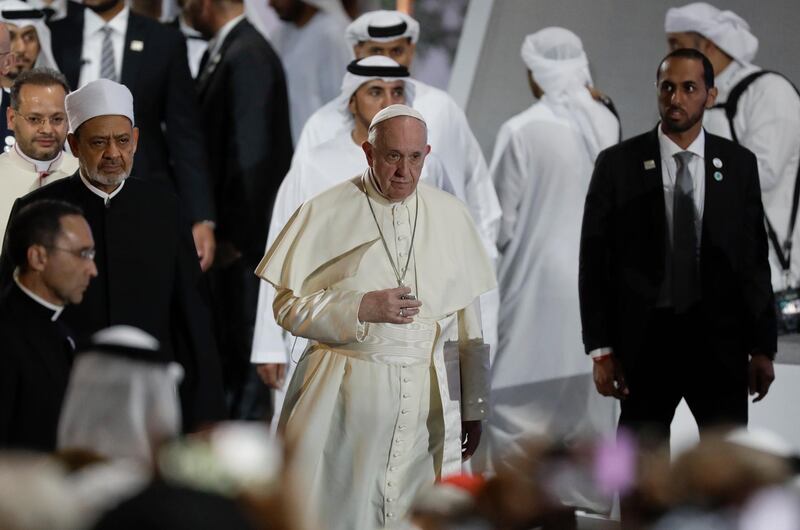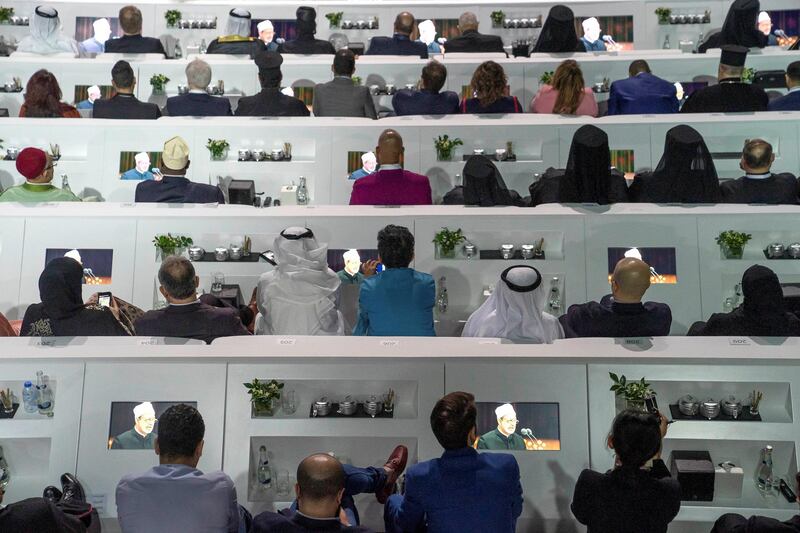On Sunday evening, under a rainy Emirati sky, the Alitalia Shepherd One landed in Abu Dhabi. The Pope met with the country’s leaders and religious elders, before flying back to the Vatican on Tuesday.
It was a brief trip, but long enough for the Pope to form a favourable impression of the UAE. “I saw a modern country,” he said on the flight back to Rome. “It’s modern and welcoming of so many people.”
On his last day in the Gulf state, Pope Francis celebrated mass in front of 150,000 people. One young girl surprised the Pope and onlookers when she breached security to approach the white Popemobile and deliver a letter to the pontiff.
“A brave one!” Pope Francis exclaimed. “I liked it, you have to be a brave one to do that.”
Inside the Zayed Sports City Stadium, against the backdrop of a towering cross and statue of the Virgin Mary, the pontiff underscored his message of unity. “Take care of each other, there are no first and second-class Christians,” he told the crowd.
Moments later he was escorted to the presidential airport to board the Etihad flight home.
The UAE, he told reporters aboard, is a nation that looks to the future.
“They educate their children by looking forward," he said. "They’re always looking for new things. I even heard someone say: ‘One day we’ll cease to have oil, we’re readying ourselves for that day.’”
Despite his advanced age and grueling schedule, Pope Francis entertained the press corps for 45 minutes during the flight.
The questions ranged from his ties to the Muslim community to the dangers of war.
His extensive answers and trademark smile at times gave way to weariness, and the satisfaction of a successful trip seemingly replaced by sporadic expressions of melancholy.
Six years into his papacy, the 82-year-old pontiff has been relentlessly criticised by conservative members of the Church for his liberal leanings and reformist ideals.
Flanked by his spokesman Alessandro Gisotti, Francis oscillated between humourous remarks and serious analyses, including on the wars that have ravaged regional countries like Yemen and Syria.
“There’s only one great danger at the moment – destruction, war, hate among us,” he said. “And if we’re unable, among believers, to give each other a hand… our faith will be defeated.”
The Human Fraternity document signed by the Catholic leader and the Grand Imam of Al Azhar Ahmed Al Tayeb on Monday night was a public and historic step toward greater religious cooperation.
Here’s a look at what it was like on board Pope Francis’s ‘Shepherd One’ flight to the UAE https://t.co/0G4MhxIbqo#PopeFrancisInUAE #البابا_فرنسيس_في_الإمارات pic.twitter.com/oASN2UTdtY
— The National (@TheNationalNews) February 4, 2019
The document, explained the Pope, was born from faith in God. “He is a father to everyone, he is the father of peace and he condemns every destruction, every terrorism.”
The guidelines to the document on peace and coexistence had been worked on for over a year.
But in an increasingly hostile world, critics of the Pope have viewed his trip to Abu Dhabi with scepticism, accusing him of being manipulated by Muslim countries.
“But not only by Muslims,” the Pope said. “They accuse me of being instrumentalised by everyone. Even journalists!”
The Pope was emphatic though that the guidelines drawn up by Dr Al Tayeb and himself were faithful to the values of the Vatican Church. “The document was made in the spirit of the Vatican,” he said.
While his trip symbolised a step forward, 50 years in the making, progress towards religious harmony would not end there, he said. “It must develop.”
Pope Francis also recounted the private meeting held on Monday afternoon between members of the Council of Elders and himself inside the Sheikh Zayed Grand Mosque.
It was very touching, he said. “They were of various cultures, this indicates the openness of this country to dialogue.”
“They really are wise,” he said of the Council of Elders. And only through wisdom, he added, can friendship among people be born.
